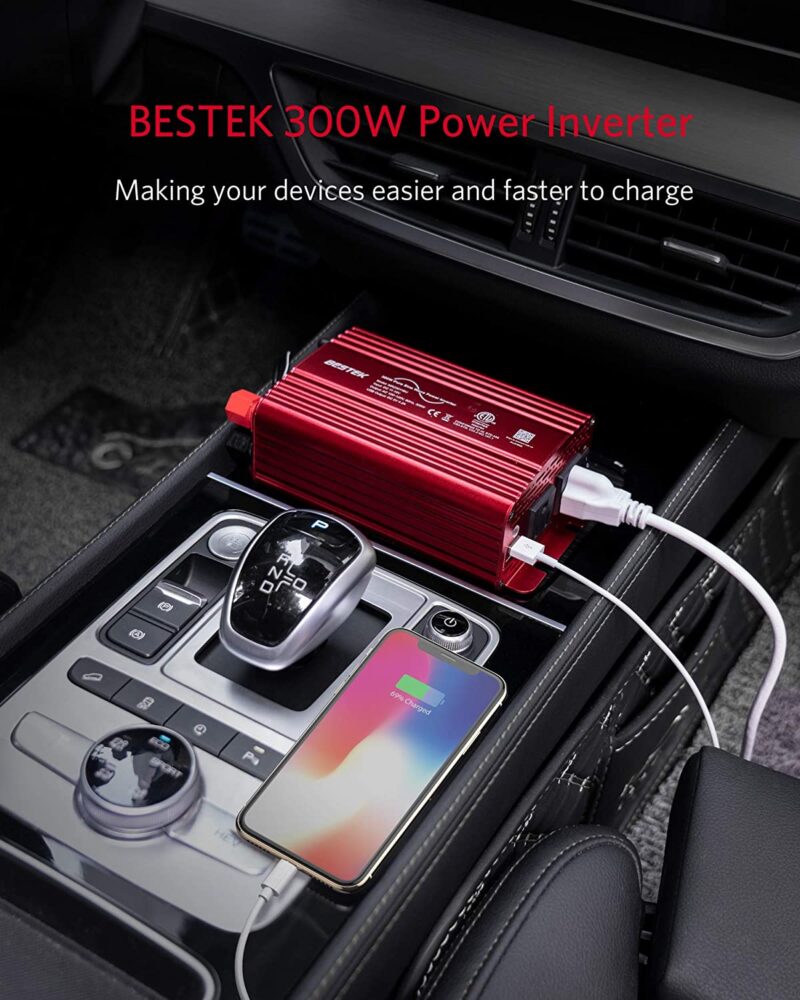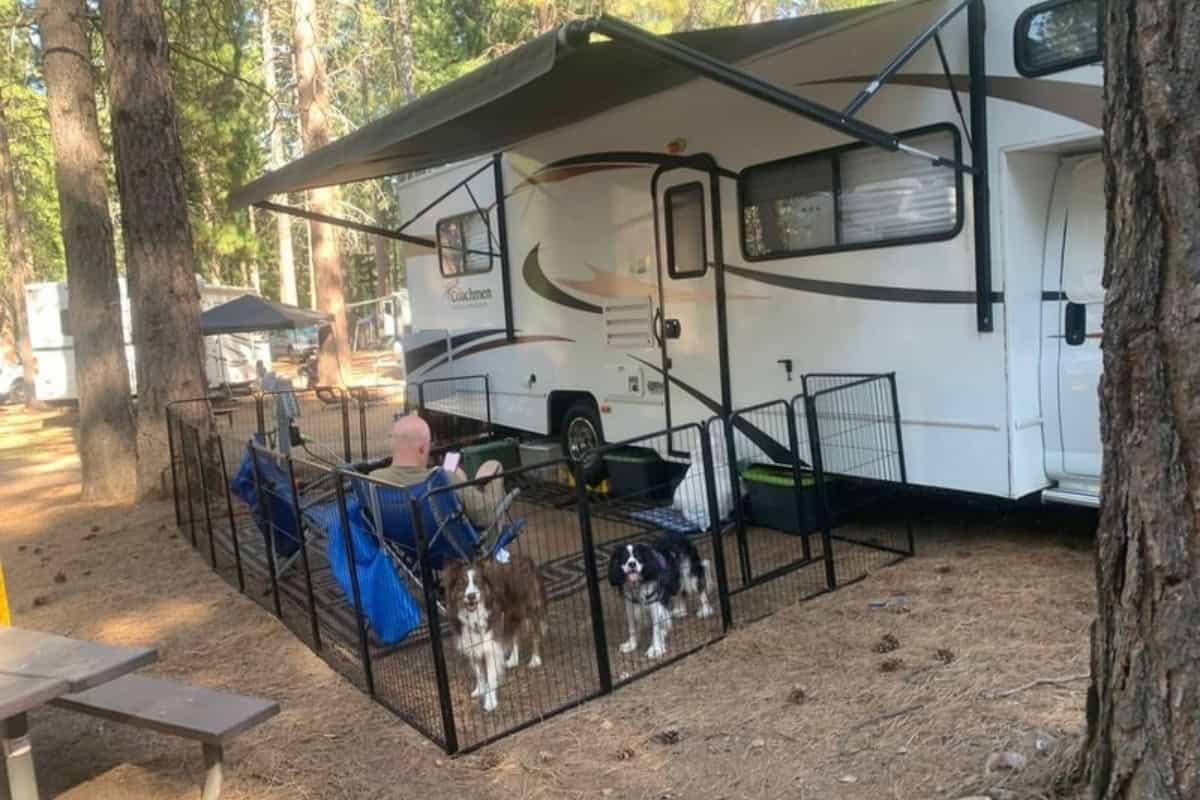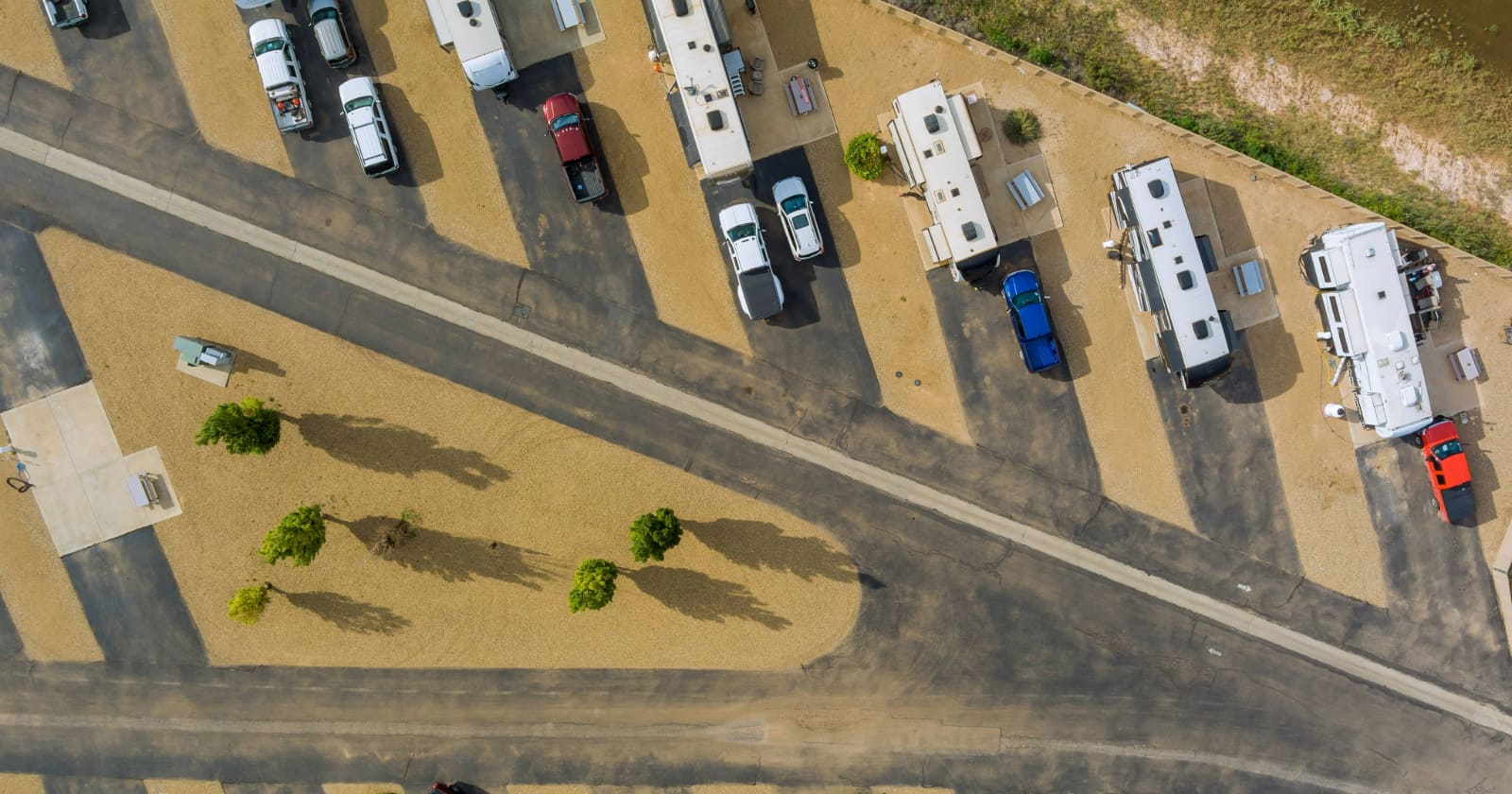How To Choose The Best RV Power Inverter For Your Needs
An RV inverter converts DC power from the RV’s battery to AC power for appliances and electronics. It’s helpful when camping in areas without electrical hookups or to save energy.
There are several different types of RV inverters available on the market, each with its own set of benefits and features. Some inverters are designed to power small appliances like laptops, cell phones, and other low-wattage devices. Others are capable of powering larger appliances like refrigerators, air conditioners, and televisions.
One thing to keep in mind when choosing an RV inverter is the size of your RV’s battery bank. In general, the larger your battery bank, the more power you can draw from it, and the more appliances and devices you can run at the same time. Another consideration is the type of wave output that your inverter produces.
Sine wave inverters
Sine wave inverters are ideal for devices and appliances as they produce clean and reliable power, unlike modified sine wave inverters that may harm sensitive electronics like computers and TVs. For RV inverter installation, follow manufacturer instructions and ensure compatibility with your RV’s electrical system.
It’s also a good idea to have a professional electrician install the inverter if you’re not comfortable working with electrical systems yourself. Overall, an RV inverter is a great addition to any RV or camper, providing you with the freedom and flexibility to use electricity wherever you go. With the right inverter, you can enjoy all the comforts of home on the road without sacrificing your energy or your budget.
Need to run the microwave while parked at Walmart? An inverter lets you do just that. Want to use your Starlink while boondocking? With an RV power inverter, you can do that, and you won’t even need to run a generator.
All that being said, there are some things you will want to consider before buying an RV inverter in order to ensure you get one that suits your needs. Here are our top tips for picking the best RV power inverter for your rig.
12 Volt vs 24 Volt
First, you will need to determine whether your RV will run on a 12-volt or 24-volt system. Most RVs come with a 12-volt system built-in, and if you’re new to working with RV electrical systems, we recommend sticking with the 12-volt option.
That said, there are some benefits to switching to a 24-volt system. If you’ve researched these benefits and want to make the switch, make sure the RV power inverter you purchase is a 24-volt inverter. Otherwise, you will need to ensure you purchase a 12-volt inverter.
Considering your needs
Next, you will want to think about what you will be using the inverter for. Do you need something to run your Starlink or power a CPAP? Or are you wanting to run the whole RV on your inverter?
Determine the wattage of the appliances you intend to use with the inverter and choose one that can handle the highest wattage appliance, plus a safety margin.
Plan to run more than one appliance at once? You will need to add the wattage of those two appliances together and use that number (again, adding some extra cushion) to decide which RV inverter might work best.
When choosing your inverter, you want to pick based on the continuous wattage, not the peak wattage, as the peak can only be sustained for very short periods of time.
Modified sine wave vs pure sine wave
Now that you have an idea of how many watts you want your inverter to offer, the next step is choosing between modified sine wave and pure sine wave. Honestly, while buying a modified sine wave inverter will absolutely save you money, we will always recommend going with a pure sine wave option.
This is because modified sine waves can badly damage sensitive electronics (like Starlink equipment, etc.), which is something nobody wants to deal with.
Should you wire your RV power inverter into your system?
Some RV inverters are made to be hardwired into the system. Others simply include outlets that users can plug into. The question is, which is better?
Really, this depends on personal preference. Hardwiring an inverter is the best choice for frequent dry campers who want to power their entire rig. However, it requires more knowledge than plug-and-play options. If you only need to occasionally power a single appliance, it may not be worth learning.
An intermediate solution is to connect your inverter to the battery bank and attach your RV to the inverter via an adapter. This approach enables you to operate your entire RV from the inverter. Nonetheless, the inverter’s outlets are restricted to 20 amps, which restricts the size of inverter you can purchase.
Is an RV inverter-charger necessary?
Let’s say you decide you want to hardwire your inverter into the system. In this case, you have another choice to make. Do you want a standalone inverter, or would it make more sense to invest in an inverter-charger?
First, let’s talk about what an inverter-charger is. As you might have guessed, this handy device works as both an inverter and a battery charger, taking the place of a traditional RV converter. Most inverter-chargers will automatically switch from charging mode to inverter mode when they are disconnected from shore power, and vice versa.
Obviously, this is incredibly handy, but is it necessary? Well, lots of people love the convenience of an inverter-charger, but no, it isn’t necessary.
You could use a traditional converter to charge the batteries and install a separate inverter that you turn on manually when needed. If you switch to lithium batteries, make sure your converter can handle them properly. This is less automatic, but there are some people who prefer it because such a system doesn’t leave them without a charger should the converter break (or the other way around). On top of that, this route can be a cheaper way to go, and a converter and inverter combined are often less weight than a single inverter-charger.
Our favorite RV power inverter options
By now, you should have enough information to choose the perfect inverter to suit your needs. That said, if you still need a bit more guidance, check out the list of our favorite RV inverters below.
Victron Energy MultiPlus
The holy grail of RV inverter-chargers, the Victron Energy MultiPlus is the way to go if you aren’t on a strict budget. This thing will charge your batteries, automatically switch over to inverter mode, and even use your batteries to supplement shore power that isn’t quite enough.
Sigineer Power Inverter Charger
Want an inverter-charger but can’t spend quite that much for the Victron above? There are a few options on the market. Unfortunately, we personally had a bad experience with the Sungold version, but the Sigineer Power Inverter Charger is a great product with the same features offered by Sungold (including an automatic transfer switch and a remote) and it is very budget-friendly.
Fit4Less 2000 Watt Pure Sine Wave Inverter
Need something even more budget-friendly, or are you just looking for an option that is easy to plug in and use? The Fit4Less 2000 Watt Pure Sine Wave Inverter offers enough power to run almost anything in your RV. All you have to do is connect it to your battery bank and then plug in whatever you want to use.
Bestek 300 Watt Pure Sine Wave Inverter
Finally, if you’re just looking for something to run your Starlink or some other small device, we highly recommend the Bestek 300 Watt Pure Sine Wave Inverter. This tiny little thing runs like a champ and it really couldn’t be any easier to use (or easier on the wallet). We like that it includes both a car outlet adapter and a pair of alligator clamps so it can be powered in different ways.

See what other RVers are saying
Forums such as iRV2.com and blog sites like RV LIFE, Do It Yourself RV, and Camper Report provide all the information you need to enjoy your RV. You’ll also find brand-specific information on additional forums like Air Forums, Forest River Forums, and Jayco Owners Forum.
Related articles:



